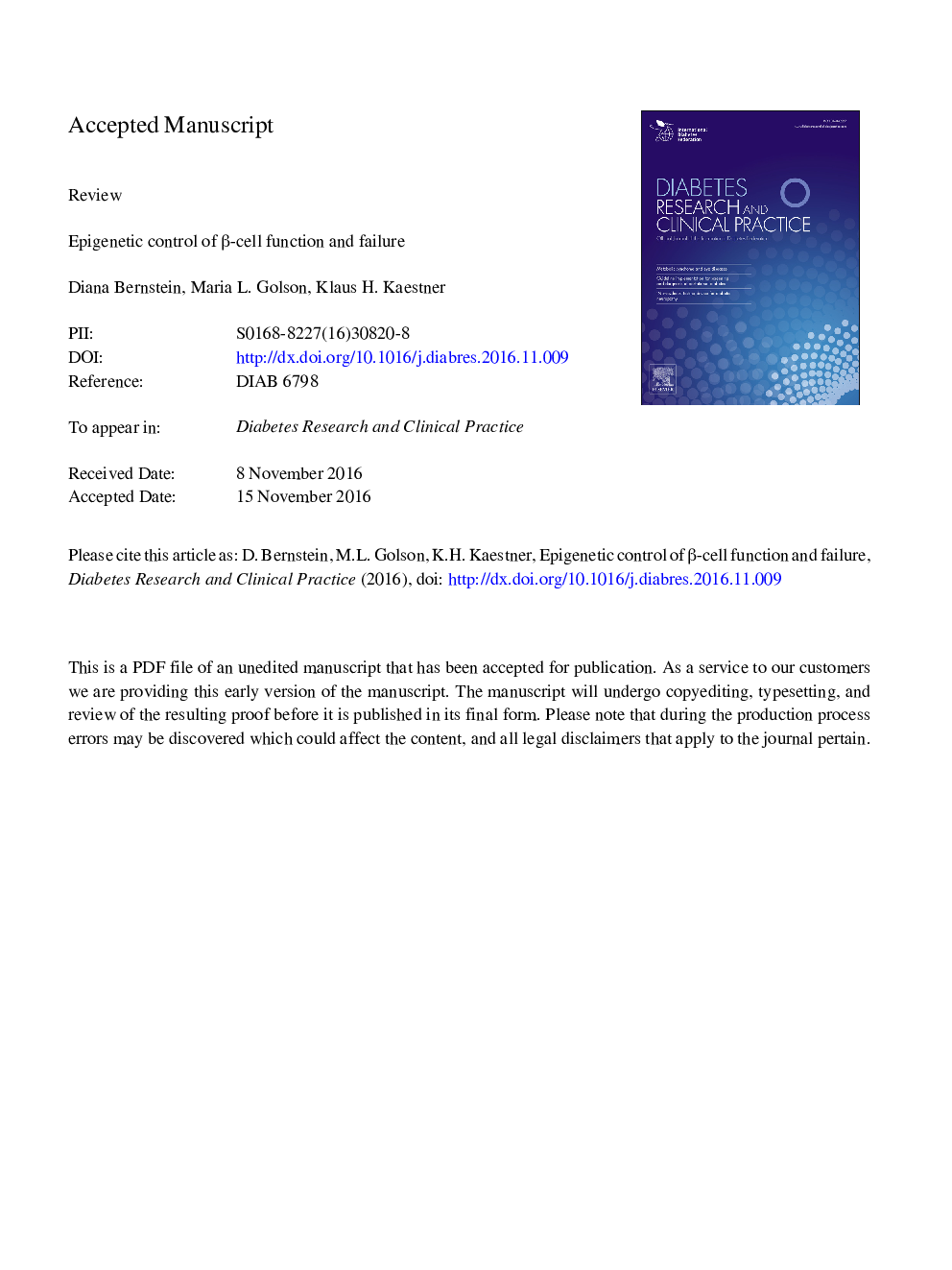| Article ID | Journal | Published Year | Pages | File Type |
|---|---|---|---|---|
| 5587426 | Diabetes Research and Clinical Practice | 2017 | 28 Pages |
Abstract
Type 2 diabetes is a highly heritable disease, but only â¼15% of this heritability can be explained by known genetic variant loci. In fact, body mass index is more predictive of diabetes than any of the common risk alleles identified by genome-wide association studies. This discrepancy may be explained by epigenetic inheritance, whereby changes in gene regulation can be passed along to offspring. Epigenetic changes throughout an organism's lifetime, based on environmental factors such as chemical exposures, diet, physical activity, and age, can also affect gene expression and susceptibility to diabetes. Recently, novel genome-wide assays of epigenetic marks have resulted in a greater understanding of how genetics, epigenetics, and the environment interact in the development and inheritance of diabetes.
Keywords
Related Topics
Life Sciences
Biochemistry, Genetics and Molecular Biology
Endocrinology
Authors
Diana Bernstein, Maria L. Golson, Klaus H. Kaestner,
